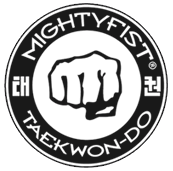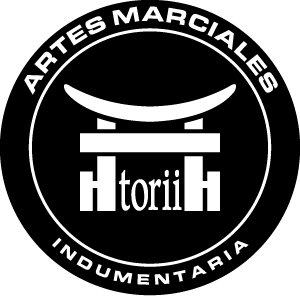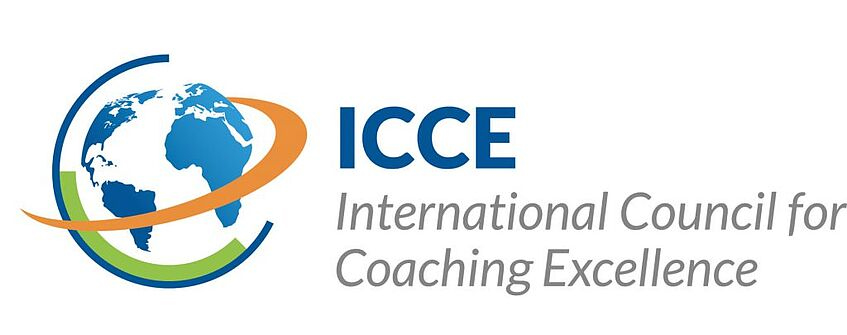How can we become TRUE martial artists in the 21st century?

As you know, my vision of Taekwon-Do as ITF leader involves developing the full potential of our martial art through four facets: sport, martial art (self-defence), way of life and tool of social development. I presented it the first time as part of my speech (4 pages – 123 kB) after my election in Warsaw in June, 2003. I also presented to you my point of view about the learning and teaching of the Do in ITF-Taekwon-Do in the Message of the President of April 2004.
In the present message, I would like to comment on how to ensure a clear understanding and application of the tenets of Taekwon-Do and the student’s oath, as members of the ITF, in order to become true martial artists in the context of a modern society in the 21st century.
Martial art is an art of combat. It focuses on how to survive against physical attacks to preserve our physical integrity when confronted with aggression. In ITF-TKD, our founder, General Choi Hong Hi, has developed an ITF technical system that is complete and effective. We are proud to have its explanation available in books, as well as on CD-ROMs and videos and other means of dissemination. It does make it easier for us, all around the world, to practice it the same way.
Since 1979, I had opportunities to visit many dojangs on different continents. I would like to point out that we still need to improve the effectiveness of our training, particularly our skills for close combat. Indeed, in many places, our members practice ITF-TKD simply for fitness or mainly as a sport for competition where the rules restrain the effectiveness of TKD techniques to ensure the safety of the competitors. It is very good. However, if we want ITF-TKD to be truly a martial art, we also need to train our members to adequately respond with self-defence techniques when our lives are in danger or when we are facing dangerous aggressors. The ITF encourages all grandmasters, masters and instructors to pay more attention to this matter. The ITF Technical and Instruction Committee will provide, through our seminars and ITF website a comprehensive documentation and programs to teach self-defence more effectively in the near future.
It is important to use ITF self-defence techniques in real life only when it is absolutely justified to do so. Taekwon-Do can be a lethal weapon. It is like a knife. If it falls in the wrong hands, it can be misused. Teaching a sense of morality and ethics to students of Taekwon-Do provides an effective way to prevent the misuse of Taekwon-Do. If someone takes up training in ITF-TKD with the intention of becoming a street fighter, he must soon give up the notion of street fighting or give up his training. I urge grandmasters, masters and instructors to study and teach the DO to their students to prevent the misuse of ITF-TKD. It is a matter of professional and ethical responsibility.
For your information, for the ITF Congress of July in Germany, I am preparing a presentation of the basic master program for teaching the DO along with an Instructor’s manual to facilitate the implementation of the program. Its content is the result of our intensive work of the last two years on this important matter. I will recommend to the Congress to adopt this program for gradual implementation at worldwide level. This strategic action will be beneficial to our members. It will allow our organization to achieve the vision that I described earlier, which involves developing the ITF as a true international martial art organization.
As authentic martial artists, we must know and apply without any compromise the values or tenets of martial arts, namely, respect the truth, respect our masters, and live in accordance with strong moral principles. Here is why being truthful is important if we are to have a stable life, long-term happiness and be trusted by others. Respect for the truth, reference to integrity, is critical to ensure our credibility in society and to secure inner peace. It helps us to have good relations with good people and, more colloquially speaking, to sleep well at night!
The martial art system is a hierarchical system. It emphasizes respect toward grandmasters, masters and seniors. We value loyalty, gratefulness and respectfulness in our structure. In ITF-TKD, it is important to understand and apply correctly these principles, especially as practitioners in the context of modern society. This is why the ITF Board of Directors adopted last year By-Law No.1 which contains article 3k) and article 7.5.2 to ensure this practice.
The DO in Taekwon-Do shows us the way. Life is like a path or a road. We travel through life just as we travel a road. If we want to be successful in life, we need strong moral principles. A true MASTER (called “Si-fu” in the Chinese language) provides guidance to his students. He is responsible for showing them the way. He helps them to walk on the right path by teaching them how to identify what is RIGHT and avoid what is WRONG. It follows that the MASTER should not use his position, as teacher, to misguide his students by knowingly misrepresenting or concealing thetruth to his students, nor should he make any compromise with any party to further his own personal, political, or business interests at the expense of the best interests of his students.
The role of the MASTER is critical in the development of a martial art. On this, I wish to bring to your attention a serious problem. I have been observing for many years that in ITF-TKD, we seem to have a lot of misunderstanding of this role. Furthermore, it is also misused.
Here are some examples:
Let us consider a business relation between a master and one of his students working as instructor. The master may use his position to dictate the terms of the business agreement and leave no choice to the student who must accept his terms or else. This is misused of power. A master should not use his position to take advantage of students in business deals. Since his students are benefiting from his knowledge, his skills and his interventions, it is fair to have a business arrangement that provides a financial benefit to the master. However, the benefit should be fair and justified. The ITF is concerned about the preservation of the good relation between masters and his students regarding this delicate matter. This is why we have adopted the Policy Guideline that allows our grandmasters, masters and instructors to arrive at fair agreements to share benefits such as examination fees.
A MASTER is like an educator. His main function is to provide students with the knowledge and the skills they need to become self-sufficient and productive members of ITF and society. He provides moral guidance to his students. He helps them to become good citizens, good leaders. Teaching ITF-TKD goes way beyond teaching techniques. It involves teaching moral values. A good master must practice what he preaches. He must set good examples and be a champion in the application of these values in his every day life. This is the best way to teach students.
If a MASTER does not do what is RIGHT, a student does not have to obey or follow his master. He has the right to analyze carefully the situation with the other students using the moral principles promoted by ITF-TKD. The students should go and see their master to discuss respectfully the matter with him to make him aware of the problem and its consequences and to convince him to change his mind. If the master does not want to acknowledge his mistake, then, the students do not have to agree with their master and should take action accordingly. This does not mean that they should speak ill of him or try to destroy him. They should simply dissociate themselves from him and go to a higher authority in the ITF to bring the problem to their attention. The ITF will analyze the situation and intervene in accordance with the ITF Constitutions, By-Law, Rules and Policies. It does require indomitable spirit to do, but it is the right way in the true martial art. Respect is not a right. It is a privilege gained by providing knowledge and teaching strong moral values to his students. A good master will respect his students and will not use his position to exploit them or to keep them under his control. Instead, he will help them to grow and become self-sufficient. He will be happy to see them become good and productive members of ITF and society.
The relationship between masters and students is like the relationship between parents and children. Parents raise their children. They take care of them. They help them to grow and become adults who are responsible and able to take care of themselves. Later, children leave their parents and they become parents themselves. It is hard for parents to see their children leave home. But it is the way. Children are not properties that parents can keep or use for their own benefits, such as taking care of them when they become old and sick. Likewise, students are not masters’ properties. A true martial artist will educate students and allow them to grow and travel the road by themselves and become leaders of TKD and leaders of the world. He will set them free but he will remain available to provide them with guidance when they call upon him for advice. Such a relationship can develop and prosper only when there is mutual respect between masters and students.
Finally, I want to clarify another misunderstanding in relation to the notion of RESPECT. It is not the same as worshiping, which amounts to “personality cult.” Respect that is so blind as to not to be able to recognize what is wrong in the other persons is dangerous. It does exist in ITF-TKD. To respect someone merely because of his high rank is not acceptable. A master must be worth the respect from his students and must maintain the highest standards in terms of moral behaviour. Students who are treated well, fairly, and respectfully are more likely to show respect and gratitude toward their master. In short, respect is not something that we can command. It is something that we earn. This is true respect in the martial arts!
Further Comments:
There are instructors who go up in ranks. When they reach 4th degree, there is too often a sudden change in their attitude towards their master. A member of ITF must remain the same person with the same respect for his master. Humility and gratitude are important values to live by. I was witness on many occasions that instructors who quit their master for power or money regretted it later on when their own students did the same to them! Therefore, living with moral principles will guarantee to you long success and continuous happiness!
There is too much politics in Taekwon-Do at the present time. People are confused and some of them are mere opportunists. Recently, I received a letter from an instructor who wanted to blame me for creating division in ITF. He was asking that I make an attempt to reconcile with Mr. Chang Ung for unification of ITF Taekwon-Do. Such misunderstanding is regrettable. The fact of the matter is that it is Mr. Chang Ung who acted against the ITF Constitution in Pyongyang by proclaiming himself President of the ITF without being duly elected by the Congress. He is the one who divided the ITF. I did not run for president of the ITF because I had a big ego or because I wanted to have power. I ran because I wanted to preserve the fundamental values of ITF-TKD: fight for justice and democratic principles. I did not want ITF-TKD to be used for political purposes. Instead, I wanted to work so that General Choi’s legacy be continued with the development of a renewed vision combined with a strong and functional organizational structure.
A true martial artist continues to practice even when he reaches higher ranks. Too many high rank black belts gave up the practice of TKD or practice too little. It is a mistake with regard to the way of life. It also contributes to a loss of respect from students when teaching. General Choi used to say during his seminars: “You cannot teach ITF-TKD just by mouth. You must demonstrate your competence by your ability to execute techniques well or by your knowledge.” This emphasis on practice is consistent with the ITF policy regarding promotion to 7th degree and higher in that promotion (4 pages – 66 kB) as it is not based merely on seniority but on competence, achievements, credibility, character, and so on.
Finally, I sincerely hope that the above message will help you to understand that there is consistency and coherence in the vision, By-Law No.1 and policies of the ITF over the last two years as well as my interest in serving the ITF and that you will act accordingly with it in order to be a TRUE martial artist and ITF member in the modern era.
Vientiane, Laos March 8th 2005
Master Trân Trieu Quân

Master Trân Trieu Quân
Black Belt 8th Degree
ITF President
Comments of Mr. KC Tan from ITF-Singapore on the Message from the President
Dear Master Tran,
Thank you for your email and sharing your thoughts.
An excellent article Sir!
As the late General said in his 3rd Philosophy of Taekwon-Do – Be content with what you have in money and position but never in skills.
However, he goes on to mention in the 9th Philosophy – Be the eternal teacher who teaches with the body when young, with words when old, and by moral precept even after death.
We should not forget that Man is not an Immortal for he ages as time passes thus there will come a time when he will no longer be able to perform as perfectly as when he was younger.
As the late General had and your goodself continue to preach and emphasise, the -DO- is equally (if not more) important as the Tae and Kwon in Taekwon-Do. As the Master grows, the -DO- should grow with him; what is apparent nowadays is some Masters, at the sight of the mighty dollar, tend to forget what the -DO- in Taekwon-Do is all about and that is what saddens me.
Once again my congratulations on an excellent article and if you don’t mind, I would like to share my humble view as a small time Teacher with you:
It is not the Teacher’s job to be a Champion; It is his job to train his Students to become Champions, both physically and morally.
Best Regards.
TAEKWON!
KC Tan, Ex.S.A.(Gold), C.I.T.
Chairman
School of Taekwon-Do,
ITF-Singapore
Website: www.taekwondo.edu.sg
Comments of Mr. Lim Heng Hin from Malaysia
Dear Master Tran,
Thank you for the excellent and appropriate speech to the TKD fraternity.
You have hit the nail on the head but short of saying that TKD ITF is now very commercialized. This speech I hope will open the eyes of all ITF practitioners: Instructors, Masters and Grandmasters alike. By this message, I pray all of us will do some soul-searching and stop running down each other but to adhere to the Tenets of Taekwon-do.
Once again, congratulations on a speech well done!
“RESPECT COMMANDS RESPECT”
Taekwon,
H. H. Lim
For more information about our ITF President, read the Interview with Master Trân for the AETF Headquarters in Poland, October 2004















